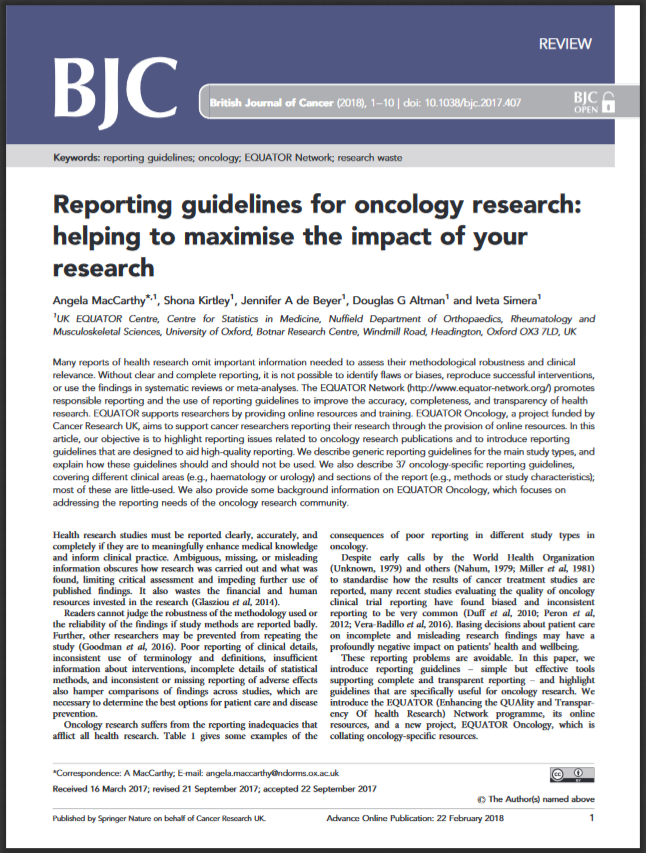EQUATOR Network publishes review of reporting guidelines for cancer research
23/02/2018 The UK EQUATOR Centre has published a review of oncology-specific reporting guidelines, including information about the EQUATOR Oncology Project.
The UK EQUATOR Centre has published a review of oncology-specific reporting guidelines, including information about the EQUATOR Oncology Project.
Members of the EQUATOR team today published an article in the British Journal of Cancer entitled Reporting guidelines for oncology research: helping to maximise the impact of your research. It introduces reporting guidelines as tools that help researchers to write up their research for publication clearly and completely, and summarises the 37 oncology-specific reporting guidelines available in the EQUATOR Network reporting guideline database. It also introduces Cancer Research UK-funded EQUATOR Oncology, a branch of the EQUATOR Network dedicated to supporting oncology researchers in clearly reporting their research methods and findings.
An editorial published in the same journal praised this first step by EQUATOR Oncology. It called for the support of oncology societies, such as the American Society for Clinical Oncology (ASCO) and the European Society for Medical Oncology (ESMO), and journal editors to spread the use of reporting guidelines.
Reporting guidelines are tools that help researchers to remember every needed detail when writing up their research. Published research papers are only useful if (i) readers can understand them, (ii) reviewers have enough information to assess the quality of the research and include the research findings in a systematic review or meta-analysis, and (iii) clinicians can use them to inform their decision-making. However, much health research is either never published or published with insufficient detail to be useful to others. This wastes limited research resources and prevents research findings from influencing evidence-based clinical practice. Reporting guidelines help prevent this waste.
The EQUATOR Oncology team has classified and described 37 oncology-specific reporting guidelines available in the EQUATOR Network reporting guideline database. These guidelines should be used in conjunction with the main reporting guidelines, such as REMARK for tumour marker prognostic studies, CONSORT for clinical trials, and STROBE for observational studies.
You can keep up-to-date with the latest issues in the methods and reporting of cancer research and with the work of EQUATOR Oncology with the EQUATOR Oncology Current Awareness Bulletin. Subscribe by emailing Shona Kirtley, shona.kirtley@csm.ox.ac.uk.
